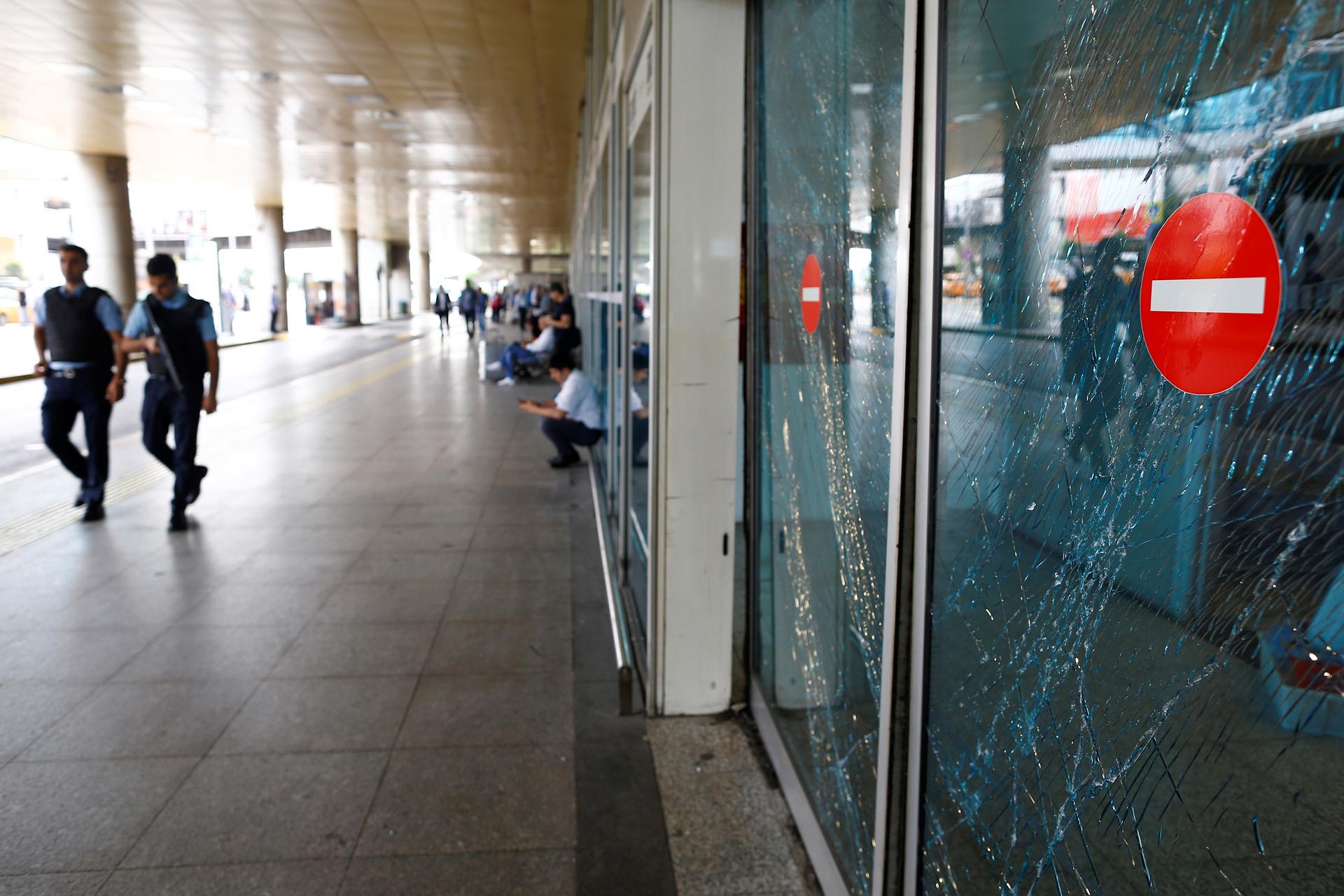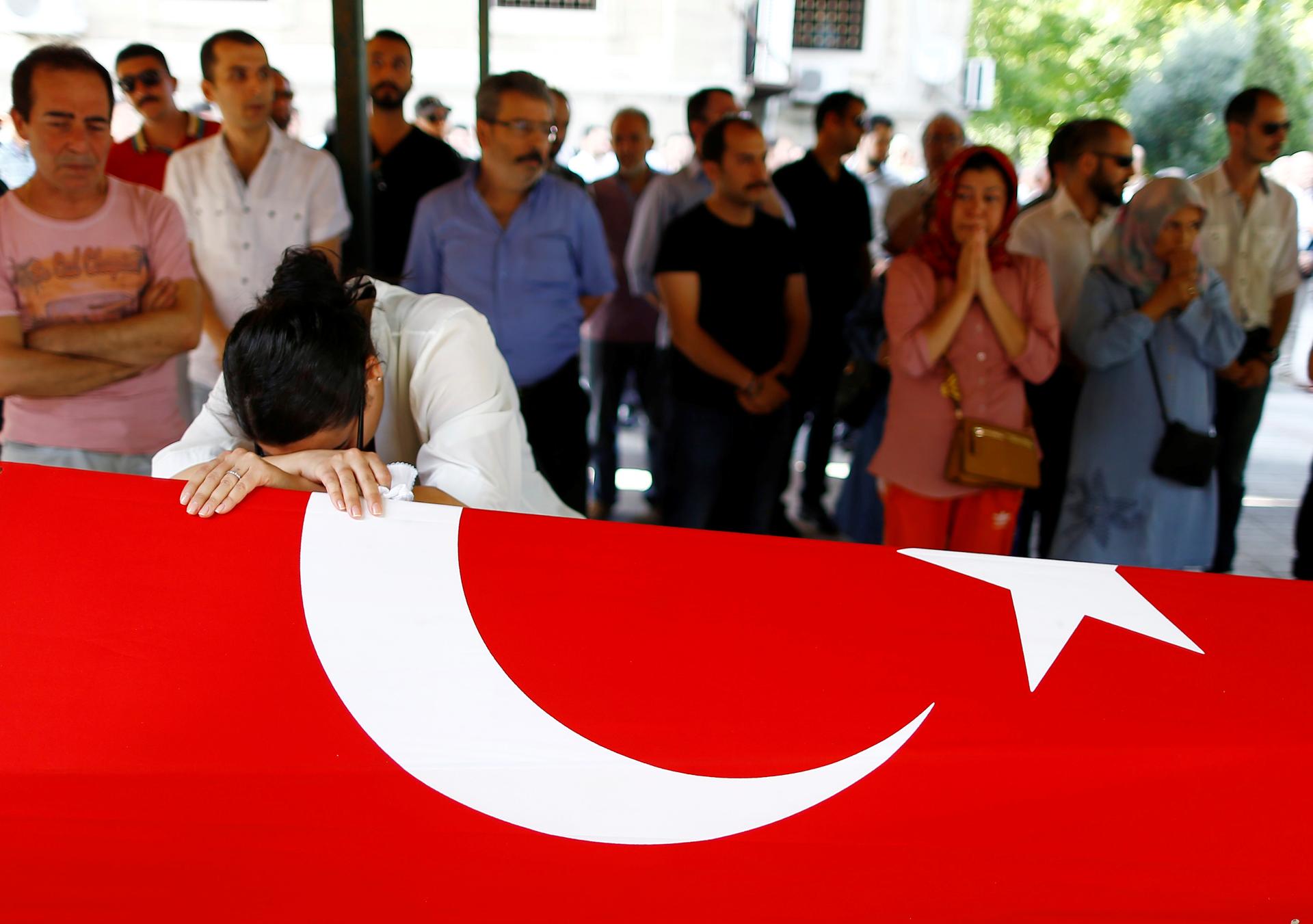Turkey’s diplomacy push is overshadowed by airport attack
A relative of Gulsen Bahadir, a victim of Tuesday's attack on Ataturk airport, mourns at her flag-draped coffin during her funeral ceremony in Istanbul, Turkey, June 29, 2016.
Before Tuesday's attack on the Ataturk International Airport in Istanbul, Turkey was making headlines for a recent diplomatic blitz, extending olive branches to Israel and Russia while continuing its pursuit for membership in the European Union.
Then came the attack.
Three suicide bombers left 42 people dead, more than 230 injured and a nation in mourning.
Among those killed were 13 foreign nationals, including victims from Saudi Arabia, Iraq, Tunisia, Uzbekistan, China, Iran, Ukraine, and Jordan. The diversity of the victims is representative of Turkey as a whole and of Istanbul as a city with an international spirit, says Borzou Daragahi, a Middle East correspondent for Buzzfeed News.
“This city has long played a role as a sort of crossroads of civilizations, cultures and religions,” Daragahi says. “It straddles both Europe and Asia and is at the nexus in the fight between secularism and Islamism.”
Turkey has been looking to shore up its international ties lately.
A recent diplomatic push successfully mended rifts with both Russia and Israel. In a call to Russian President Vladimir Putin, Turkish President Recep Tayyip Erdoğan expressed regret over the downing of a Russian military jet near the Syria-Turkey border back in November. Turkey also normalized diplomatic relations with Israel after years of dispute over an altercation between Israeli troops and Turkish activists heading toward the Gaza strip back in 2010.
“I think there’s a conclusion on the part of the Turkish authorities that they can ill afford, given the security and others problems around the region, to have enemies like Israel and Russia,” Daragahi says.

Turkey’s improved relations will likely help its economy after years of decreased tourism and recession. Trade with Russia should increase and Turkey could again become a destination for Russian tourists. Cooperation with Israel, which includes plans to run a new natural gas pipeline through Turkey, could also help the economy.
Those diplomatic moves could also help stabilize Turkey's security situation.
“Turkish authorities have said that basically they want to have as few enemies or rivals in the region as possible and as many friends as possible in order to face really challenging times ahead,” Daragahi says.
Turkey faces a serious and ongoing terrorism threat. It's been hit by multiple attacks and threats from ISIS, the Kurdistan Workers' Party (PKK) and other Kurdish separatist groups in the past year.
That's another reason why Turkish and EU officials will be meeting this week to discuss Turkey’s longstanding bid to join the EU.
Daragahi says that some believe that “were the EU to join forces with Turkey and allow it to become the first major Muslim country to be a member of this European bloc, it would signal a real high point in civilization and world history and maybe ease a lot of the tensions that are erupting between the Muslim world and the West.”
Every day, reporters and producers at The World are hard at work bringing you human-centered news from across the globe. But we can’t do it without you. We need your support to ensure we can continue this work for another year.
Make a gift today, and you’ll help us unlock a matching gift of $67,000!
